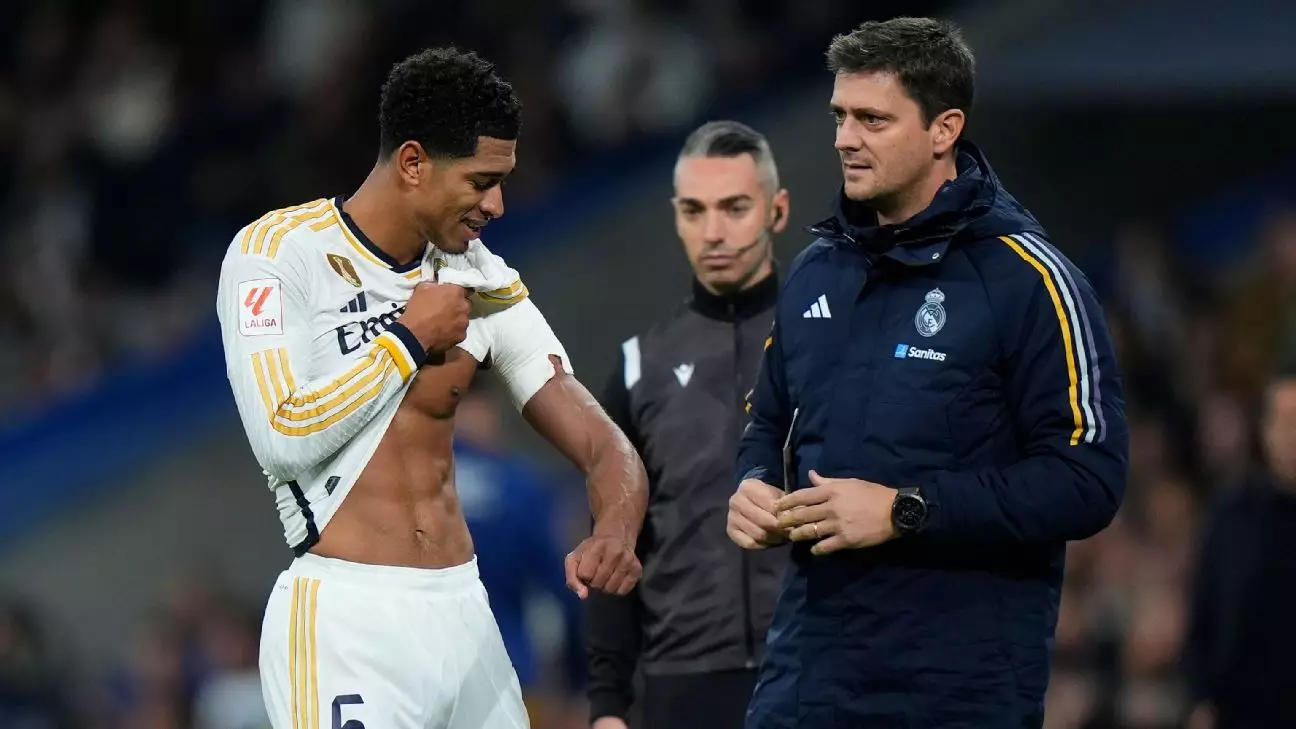Jude Bellingham has rapidly established himself as one of the most promising talents in world football. His move to Real Madrid marked a significant step in his career, and his immediate contributions—goal scoring, playmaking, and leadership—affirm his potential to become a club legend. However, his recent shoulder injury exposes a less discussed aspect of elite sports: the toll of physical setbacks on a player’s trajectory. While injuries are common at the highest levels, Bellingham’s persistent shoulder issues highlight the importance of meticulous medical management and strategic recovery plans. His decision to delay surgery initially, opting for rehabilitation to remain on the pitch, reflects a desire to contribute immediately but may have compromised his long-term health. This raises critical questions about how much patience and prioritization of well-being should inform a player’s choices, especially when health challenges threaten to jeopardize future performance.
The Dilemma Between Immediate Contribution and Long-Term Stability
Bellingham’s choice to delay surgery, despite ongoing discomfort and recurring dislocations, reveals a compelling tension between short-term impact and future durability. His desire to stay on the field during crucial matches—like the Club World Cup and key La Liga fixtures—demonstrates commendable dedication but also exposes vulnerabilities in managing injuries. It’s a reflection of modern football’s relentless demand for performance: the pressure to deliver results often leads players and clubs to opt for temporary solutions over definitive fixes. Bellingham’s eventual decision to undergo surgery signifies a mature assessment of those risks, signaling his commitment to restoring peak physical condition. From a broader perspective, this situation underscores how professionalism and long-term planning are crucial in preserving a player’s career longevity, especially for young athletes whose bodies are still developing resilience.
The Road Ahead: Opportunity Amidst Challenges
While the upcoming absence of Bellingham will temporarily hinder Madrid’s midfield solidity, it also presents an opportunity to reassess squad dynamics. His replacement must step up, providing a chance for emerging talents to showcase their abilities. Moreover, Bellingham’s recovery process will be a test of his resilience and mental toughness. His positive outlook—expressing eagerness to regain full shoulder function—bokes well for his future contributions. With potential return in early October, the English international has the chance to return stronger and better prepared for the rigors of elite competition. If he leverages this period effectively, not only can he mitigate the injury’s impact, but he can also set a foundation for an even more impactful second season at Madrid. Ultimately, Bellingham’s injury episode serves as a stark reminder that greatness isn’t just built through talent but also through perseverance, strategic decision-making, and a relentless pursuit of excellence despite setbacks.

